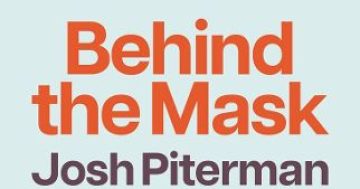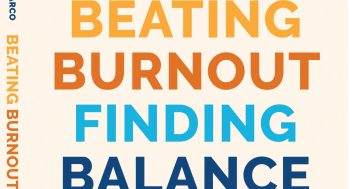Ryan Wong* says A bit of boredom could help fight the burnout epidemic.
 We’re living in a burnout epidemic. People are exhausted.
We’re living in a burnout epidemic. People are exhausted.
They feel disconnected from their jobs, and when they are present at work they feel ineffective. How do I know this?
Well, for one, the human resources analytics company I co-founded surveyed 1,000 workers and found a staggering 89 per cent experienced burnout in the past year, and 70 per cent said they’d consider leaving their job for one offering better resources for the stress they’re experiencing.
But I also know because I’ve been there, too. Shortly after I turned 38, I hit a wall.
I’d been working so hard for so long to support my family, and I could not do the day-to-day grind anymore.
So, I decided to step away for an extended leave to wind down.
With my own experience behind me, I’ve watched the pandemic become a catalyst for a crisis that was a long time coming.
Overwork is the most cited reason for burnout and decreased well-being, and despite evidence showing longer hours don’t result in better work, we’ve come to associate overtime with “above and beyond.”
As someone who has been in this position before, I believe the numbers show this is the optimal time to reacquaint ourselves with a feeling we’ve been conditioned to avoid: boredom.
Why boredom is an asset, not an enemy
When I reached my limit, I was fortunate to be in a position where I could walk away.
I didn’t work for two years, and travelled throughout Asia, including my birthplace, Singapore.
But the duration of my leave and the places I’d travelled were secondary to what brought me back from burnout: I learned to rest my mind.
When’s the last time you gave your mind a break? I’m not talking about a day off packed with errands and chores.
I’m not talking about a two-year hiatus, or even a one-week vacation, either.
Indeed, our data show that 49 per cent of employees say taking time off work is just a Band-Aid solution that doesn’t address the root causes of burnout, including task lists that are simply too long for anyone to fully check off.
When those root causes are left unattended, burnout can spiral into corporate chaos.
Under stress, our decision-making suffers.
Leaders over-simplify and become more reactionary.
Workers become dissatisfied and absenteeism rises.
Worse still, their personal health suffers with the onset of things like insomnia, depression, and even coronary heart disease.
Simply put, the impulse to always be doing something is wrong.
We’ve over-indexed on things to do and sold idleness short.
One study found that participants who daydreamed while performing a boring task were better creative thinkers afterwards.
Other research has found even short doses of downtime have tremendous benefits for mental health.
It’s time to accept that boredom can be a really good thing.
Of course, this takes work.
But it’s more important than ever to be disciplined about giving our minds a break.
Cultivate the habits of boredom
Throughout our lives, we’ve been conditioned to believe that we can “do it all.”
So, it’s going to take focus to switch gears and cultivate the habits of boredom.
As the Zen master saying goes, “When I sleep I sleep, when I eat I eat.”
Focusing on even life’s most mundane tasks is an exercise in peacefulness.
It might seem boring to wash the dishes, commute the same way every day, or wait in line at the store, but these are all opportunities to rest the mind.
Creative thinking is hard to achieve when your mind is filled with stuff, and yet we constantly feed our minds with stimuli.
Dining with others includes periodic glances at a phone or TV, moments of focused work are interrupted by Slack messages, and potentially quiet walks or car rides turn into podcast binges.
Our minds need quiet.
Some studies suggest meditation, but that doesn’t have to mean sitting like a Buddha.
I live near a park, where I walk or run with only my thoughts to keep me company.
Listening to my breath and footsteps is a form of meditation, and brings me a sense of ease, like I’ve slept for a long time.
It’s still not easy for me to embrace boredom.
Indeed, It’s a daily challenge.
But by consciously making an effort to only do one thing at a time, I can give myself a daily mental vacation.
Being bored is a shared responsibility
As an employer, I struggle sometimes with how best to address burnout in our company.
But I’ve learned it takes effort from both leaders and employees.
Companies can’t force people to work a certain way.
Indeed, 73 per cent of respondents said it was their responsibility to care for their own burnout.
The problem is, most of us have bought into the multitasking myth for so long, it’s difficult to reckon with the uncomfortable truth that it hasn’t served us well.
Employers can cultivate an environment where people feel empowered to ask for what they need.
Our survey showed 30 per cent of men and 42 per cent of women weren’t comfortable speaking to their supervisors about burnout.
As leaders, it’s on us to normalise a culture where honest conversations are judgment-free.
Providing mental health resources is important, but oftentimes logging in to a meditation app or that lunch-and-learn on mindfulness is just another thing to do for stressed out employees.
Instead, companies must give workers the autonomy to do what they need to develop more sustainable work practices.
In this age of remote and hybrid work, trust, transparency and flexibility are some of the ingredients for creating an environment where boredom is possible.
Personally, I’m still learning.
It’s a daily discipline, fighting the intrusion of the constant notifications, alerts and concurrent crises.
But we’re seeing the consequences of always being “on” and as the saying goes, something has to give.
If we want to fight burnout, we must resist the societal demand for hustle, and start seeing boredom for what it is—not something to be feared, but something to replenish ourselves and rest our hectic minds.
*Ryan Wong is an engineer turned CEO of Visier, a people analytics company.
This article first appeared at qz.com.











